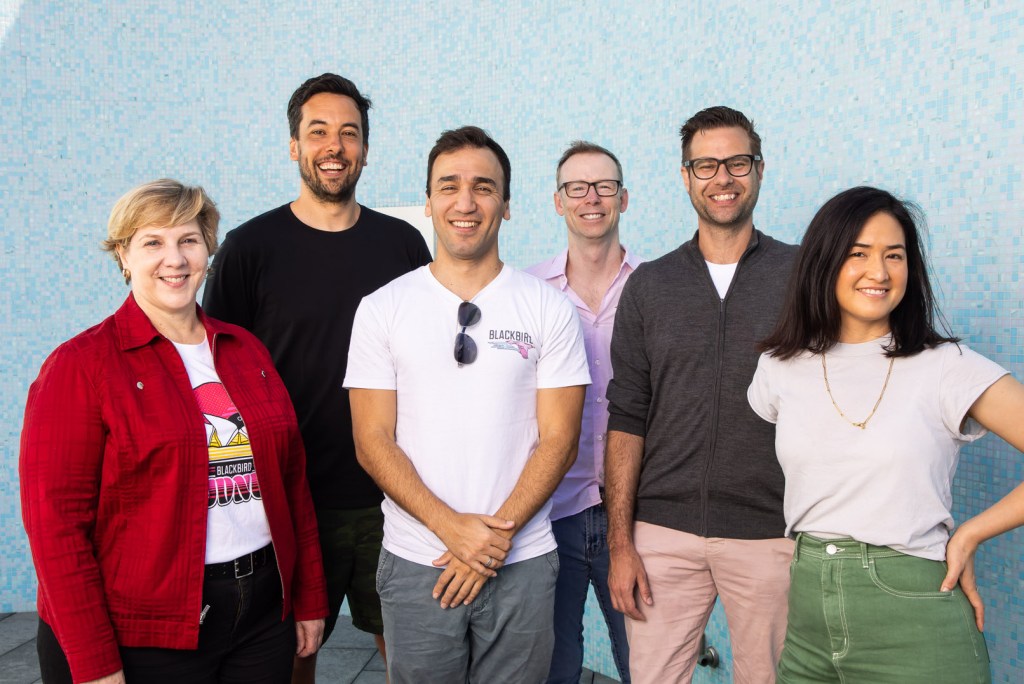Blackbird Ventures has raised Australia’s largest VC fund, with contributions from some of the country’s biggest superannuation funds and more than 270 individual investors.
Key Takeaways
- It consists of a $284 million core fund, a $668 million follow-on fund and a NZ$75 million dedicated New Zealand fund
- The fund’s strategy remains the same: to be the first investment in a founder (pre-product and pre-revenue)
- Blackbird believes tech companies will contribute one-fifth of Australia’s GDP by 2032.

A decade after the launch of its first fund, Australian firm Blackbird has raised this country’s largest venture capital fund at just more than $1 billion in committed capital (money that investors have agreed to contribute).
The fund consists of a $284 million core fund, a $668 million follow-on fund and a NZ$75 million dedicated New Zealand fund. It received investments from some of Australia’s largest superannuation funds, AustralianSuper, Hostplus, HESTA and Aware Super, New Zealand’s sovereign wealth funds and more than 270 individual investors.
“Going forward, what we have is a period where capital is a little more scarce, where the hype has come out of the market a little bit and that’s a really great time to invest.”
– Rick Baker, co-founder of Blackbird
The fund has already made 18 investments into startups across artificial intelligence, manufacturing and e-commerce, including student well-being company Sonder and AI-driven infrastructure platform Spice AI.
Partner at Blackbird, Nick Crocker, says the fund is continuing to look for founders of the future.
“Our job is to find the founders that can build the future – not to build it or predict it ourselves,” Crocker says.
“There’s so much that we are loving right now in the market – everything from engineered biology to healthcare to pure bread-and-butter, bottom-up global SaaS (software as a service) companies. We’re just waiting for that next founder to come and tell us their vision for the future of the world that lights our imaginations on fire.”
Crocker says the fund’s strategy remains the same: to be the first investment in a founder (pre-product and pre-revenue). The fund claims it has so far adhered to this strategy 70% of the time.
“We are the first cheque,” Crocker says. “Just because we have a bigger fund, doesn’t mean that changes anything in terms of our strategy. That early moment where you meet a founder who’s unknown, the idea is unproven – that’s where the magical relationship can be created.”
The timing of the fund’s launch coincides with one of the most significant tech downturns in history. But co-founder of Blackbird, Rick Baker, says the fund needed to raise additional capital in line with its fund cycle – and he believes the timing works in the company’s favour.
“Last year was a really manic period with so much hype in the market and a lot of capital coming in from offshore,” Baker says.
“It was great for founders. They could raise capital at higher prices and a lot happened very quickly in the ecosystem. Going forward, what we have is a period where capital is a little more scarce, where the hype has come out of the market a little bit and that’s a really great time to invest.”
Blackbird is arguably most well-known for its early investments into Australian tech unicorns like Canva, Culture Amp and SafetyCulture. It believes tech companies will contribute one-fifth of our nation’s GDP by 2032.
“The Aussie tech sector’s economic contribution has increased 79% since 2016, and our 2.2% share of unicorn companies well exceeds our 1.6% of global GDP,” says Partner at Blackbird, Niki Scevak, citing figures from the Tech Council of Australia.
“In 2032, we believe Australia and New Zealand’s five most valuable companies will be technology companies, and that the direct and indirect contribution of the technology sector will be more than $300B – bigger than mining, manufacturing or construction.”